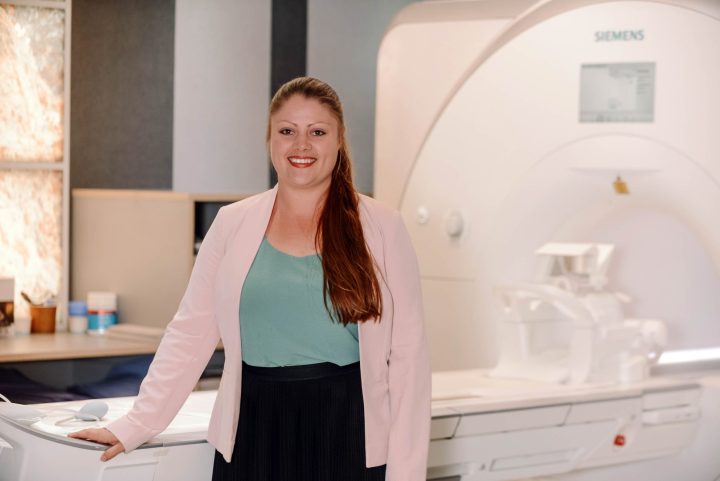
Hallucinations in Parkinson’s research
A Canterbury researcher has been awarded funding to investigate hallucinations in people with Parkinson’s disease. 
Dr Kyla-Louise Horne was just 16 years old when her grandma, who had Parkinson’s disease, passed away.
Now, 16 years later, she’s dedicating her research to improving the lives of those who suffer from the debilitating brain disorder, for which there is no known cure.
The Canterbury Medical Research Foundation has just announced Dr Horne, a Research Fellow at the University of Otago, Christchurch, as the successful recipient of its annual Emerging Research Fellowship.
A grant of $180,000 will support her two-year research project, examining how and why hallucinations occur in Parkinson’s disease.
Dr Horne’s research has been four years in the making. The project has the potential to vastly improve the lives of those living with the condition, which affects more than 12,000 Kiwis.
Around half of people with Parkinson’s disease experience hallucinations and everyone experiences them differently, says Dr Horne.
“For some people, it’s as simple as thinking you see a shadow in the corner of your eye, but others witness fully formed figures or shapes that aren’t there.”
Horne says the research will paint a clearer picture of what’s happening in the brain for those experiencing hallucinations, enabling the development of new treatment options to reduce the likelihood of them occurring, as well as finding solutions for those who are already affected by them.
“We’re hoping to use that data to characterise hallucinations in Parkinson’s disease, as well as looking at what
might put people at greater risk of developing them.”
CMRF director Melissa Haberfield says the foundation is “delighted” to play a part in supporting Dr Horne with her research.
The grant, worth up to $200,000, is awarded annually to an exceptional Canterbury researcher who is committed to improving the health and well-being not only of New Zealanders, but people all around the world.




